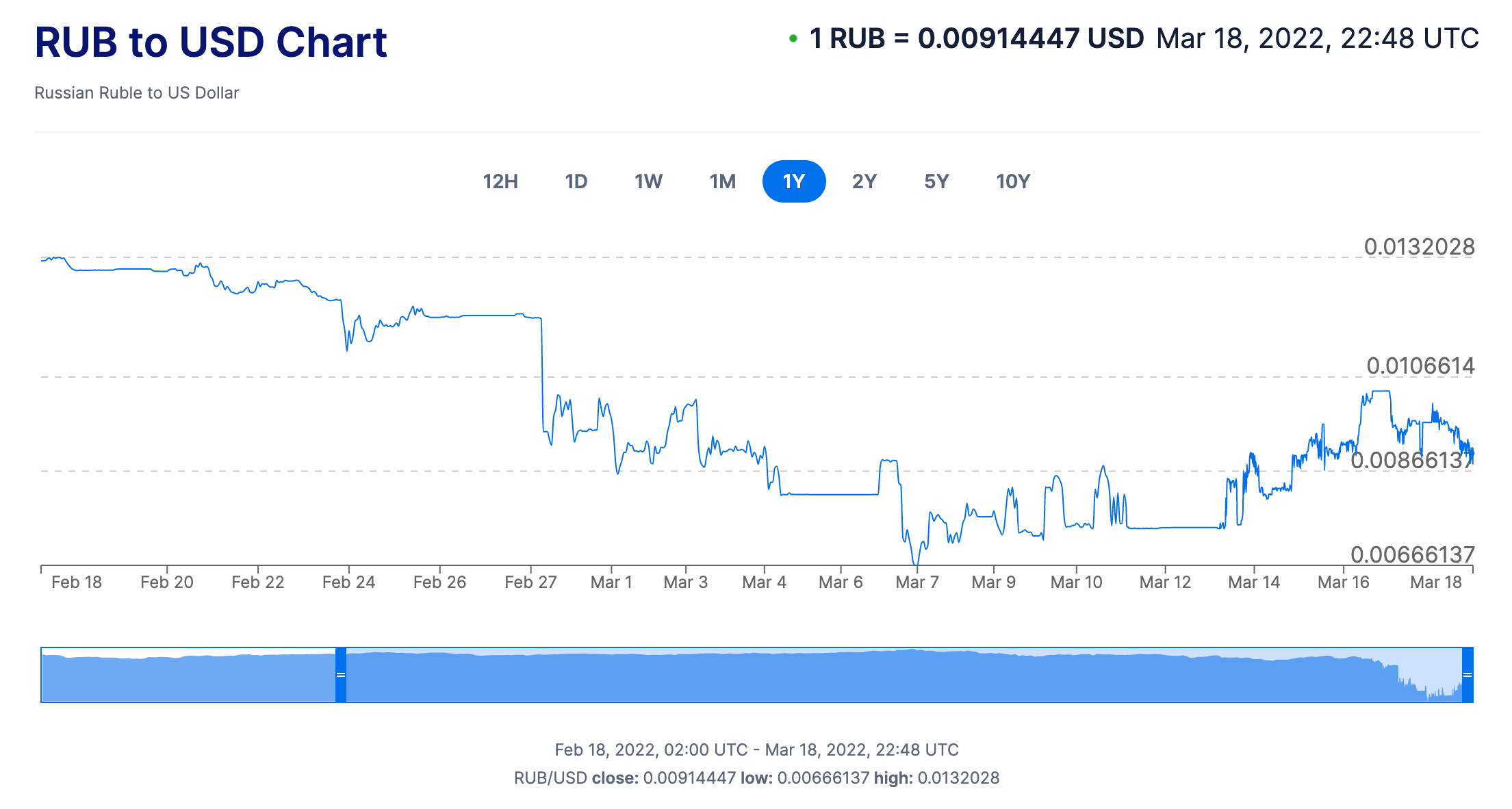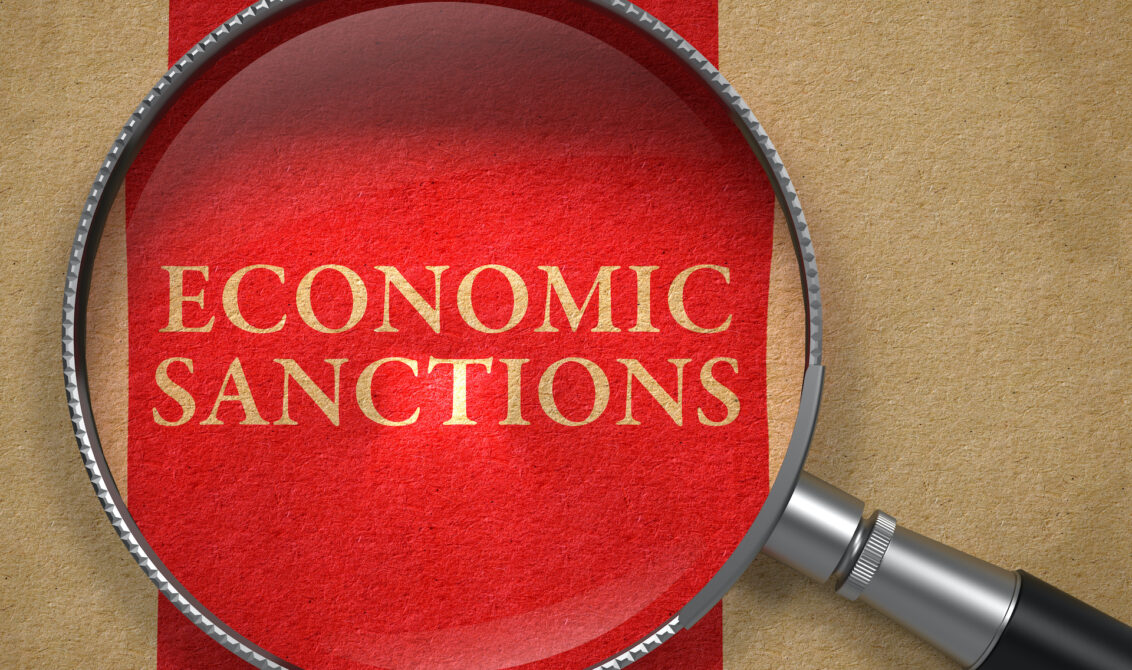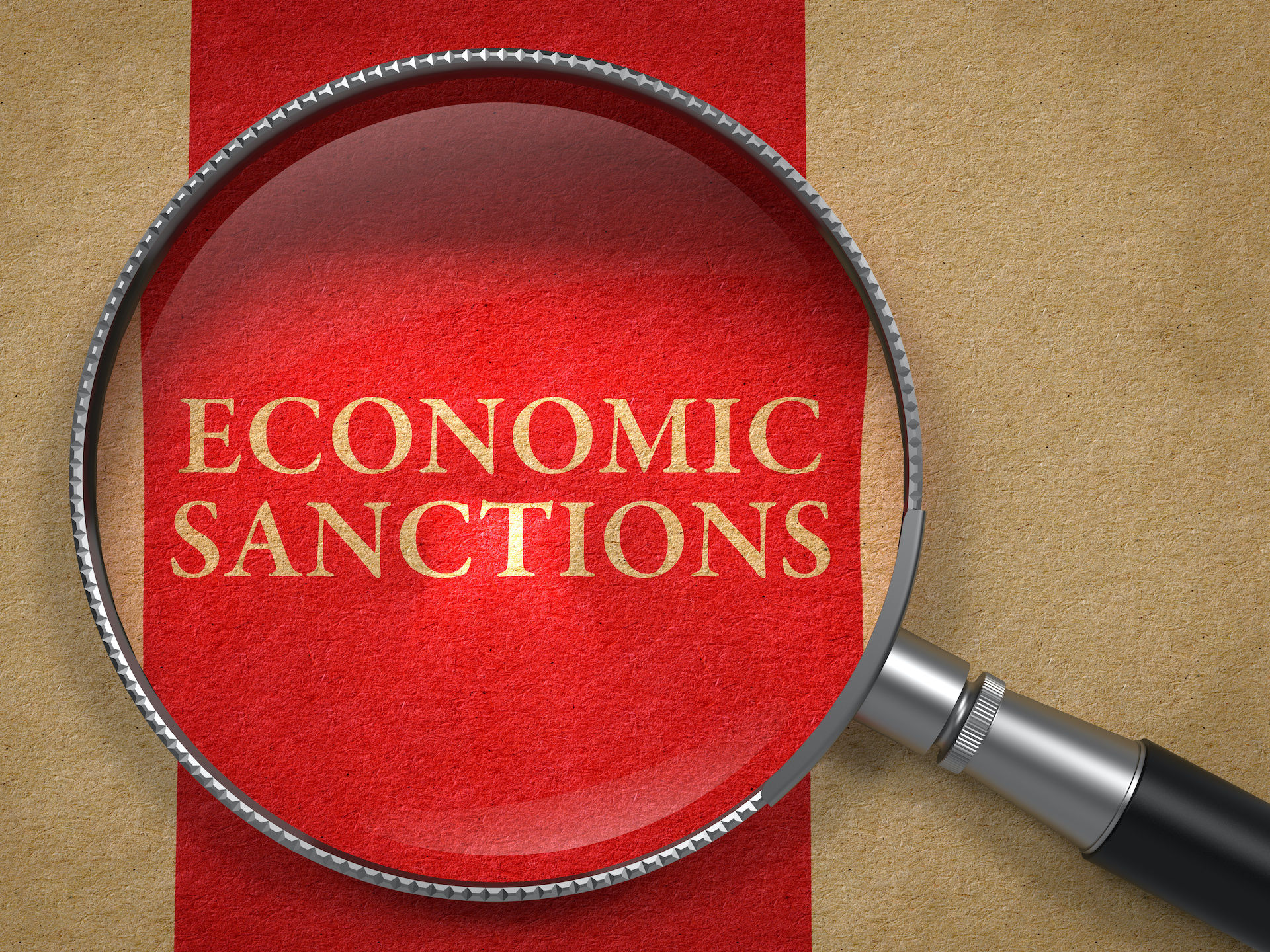On Feb. 22, 2022, U.S. President Joe Biden announced sanctions against Russia in response to Russia’s military aggression against Ukraine that included the advancement of Russian troops into two separatist regions of eastern Ukraine.

These sanctions could spell devastation for the Russian economy and small businesses around the world that conduct business with Russia-based entities, directly or indirectly.
In an increasingly integrated global economy, it is essential to have a clear understanding of how economic sanctions can impact your small business.
How sanctions impact your small businesses
Economic sanctions are penalties levied against a country, its officials, or private citizens, either as punishment or to provide disincentives for the targeted policies and actions. For policymakers, economic sanctions have become the tool of choice to respond to major geopolitical challenges such as terrorism and conflict.
Faced with unprecedented sanctions and new export control restrictions, companies that have affiliates, operate in a sanctioned country, or otherwise conduct business with sanctioned parties (directly or indirectly) should immediately familiarize themselves with the new restrictions and develop a survival plan.
What to do when sanctions loom large
When sanctions are levied against an economy or individual, businesses will make moves to distance themselves. As international companies and investors pull back on their interests, it becomes harder for private companies to raise capital and conduct business.
For example, Russian small business owners now face the prospect of losing savings, tightened capital controls, not being able to transact in foreign currencies, and a potential double-digit contraction in the economy. All of this will likely have knock-on effects via financial and trade channels.
If you have business dealings with nations with which your country has an antagonistic relationship (e.g., U.S. sanctions against Cuba, Iraq, North Korea, and Russia –– to name a few) you may not know that a broad range of economic sanctions are aggressively enforced.
“These sanctions prohibit individuals and companies from conducting any type of business with the targeted entities and subject violators to heavy civil and criminal penalties,” according to Smith Gambrell Russell (SGR), an international law firm that advises regional, national, and global businesses on a wide range of legal matters.
“Because of the sheer number of targeted entities, and the fact that connections among individuals, organizations and foreign governments may be shadowy and ill-defined, it is very easy to do business with the [sanctioned party] unknowingly and thus to violate the law unwittingly.”
Should you find yourself in the crosshairs, here’s a look at how sanctions can impact your small business and what to do when they loom large.
1. Avoid the sanctions trap
“While economic sanctions may be an effective tool for the implementation of U.S. foreign policy […] they can also be a trap for the uninformed,” says SGR.
In order to avoid falling into the sanctions trap, small businesses should “implement a compliance program that combines an awareness of exactly who the trading partners are (and who those trading partners may be associated with) with an awareness and understanding of the laws and regulations that implement the sanctions.”
Consult an international trade attorney to help you navigate potential pitfalls and identify expedient loopholes. For example, U.S. business owners can apply to OFAC (Office of Foreign Assets Control) for a license to engage in what would otherwise be a prohibited transaction.
2. Carefully consider the impact of cutting ties
Amid a geopolitical crisis, companies will naturally consider cutting ties or divestiture. However, carefully consider the cost and benefits before you end all links with a partner, supplier, or investor.
Those that decide to part ways will brace for an earnings hit and an increasingly strained supply chain. For others, there will be no impact on ongoing operations in a sanctioned country, and it can be prudent to stick with the business of business.
In the wake of U.S. and EU sanctions on Russia, for example, companies are either quickly severing ties with the country or continuing existing operations. Motorbike firm Harley-Davidson has suspended business and shipments of its bikes to Russia. Baker Hughes Co., one of the world’s largest oil field services companies, will suspend (i.e., temporarily halt) new investments in Russia operations but continue with existing work there. If you do business in a sanctioned country, you may be faced with a similar dilemma.
2. Open an offshore bank account
Russians hastened to withdraw foreign currency as new Western sanctions to punish the Kremlin sparked fear the ruble could collapse. The plunge led to long lines outside ATMs across Russia, with fears rising over further plunges in the value of the ruble.
Update: After a record drop amid Western sanctions, the Russian ruble has stabilized against the USD and EUR.

Offshore banking offers a hedge against a currency crisis. It also enables you to create a diverse currency portfolio in offshore accounts. In other words, you can own different currencies in your accounts, as well as make transactions in multi-currencies.
Opening an offshore bank account is a legal way to not only diversify into other currencies, gain access to new investments, and enjoy asset protection but also to keep some of your cash safe from fat-fingered bureaucrats or bank employees who want to limit your account.
Access to a foreign bank account can prove useful in the short and long term. Banks in Panama, for example, are exempt from whatever currency crisis is happening where you live. As a result, creating multiple redundancies will increase your chance of having access to cash when you need it most.
3. Broaden payment gateway scope
As private companies follow suit and impose their own sanctions against Russia, it will undoubtedly interrupt payments and decrease revenue. Amid sanctions, popular peer-to-peer (P2P) payment systems like ApplePay and Google Pay will be blocked or limited in Russia – for those using sanctioned banks.
This is why it’s a good idea to expand your payment method offering to build stronger reliability and expand geographic coverage. By adding support for multiple payment gateways small businesses can route transactions to the gateway that provides the best support for a particular region. The result is more successful transactions across multiple markets.
Consider wallets (Apple Pay, Google Pay, Alipay), bank redirects (Giropay, Sofort), buy now pay later (Klarna, Afterpay), and bank debits like SEPA direct, which is popular in Europe, for high-value, low-churn payments.
If you decide to accept cryptocurrency as an alternative payment method, consider online exchange platforms like Coinbase, Kraken, or Bitpay.
4. Hold cash and foreign currencies
As small business supply chains and sales are impacted by sanctions on Russia domestically and abroad, businesses owners can expect extended payment delays on receivables, especially when sales take a hit along with the rapid depletion of working capital.
Cash is the lifeblood of every small business, and you need to generate enough cash to weather a storm of sanctions. While there is an opportunity cost during the good times (you can continue to operate, pay employees, and support yourself and others), it is a necessity in turbulent times.
Similarly, foreign currencies offer strong geopolitical diversification. If you can hold on to a substantial amount of U.S. dollars or other currency, you can trade that cash at a premium.
The Singapore dollar is a safe haven currency that historically offers higher yields than the dollar and acts as a hedge if the dollar drops. The same goes with the Swiss franc (CHF) or the Japanese yen (JP¥). Liquidity can take the form of cash in an offshore bank or cash in your safe.
5. Open an offshore brokerage account to move quickly on deals
Opening an account with an offshore bank for the purpose of trading in investments and securities will let you participate in the stock markets of a country other than your own. Also, the rate of taxation, depending on where your brokerage account is located and which markets you trade on, can be entirely different. As sanctioned countries reel from unpredictable governments and volatile regulatory actions, offshore investing can protect your wealth.
6. Split into two separate entities
For business owners in sanctioned countries, it may prove necessary to split into two separate entities and serve more than one market. This strategy allows business owners to reap profits from both markets without being bound by government sanctions.
To prevent the entities from being acquiescent to the other country’s jurisdiction, the two would have no ownership nor management linkage. Absent such a strategy, companies may find themselves caught in the crossfire when new laws or sanctions are imposed.
A split can also help small businesses alleviate some of the political pressure. Of course, it’s not without its costs, as the new entities would not be able to take advantage of the potential synergy and brand equity between themselves. They may even lose customers when they can no longer tap into an existing customer base. Yet, this strategy allows multinationals to get around U.S. sanctions without losing much and can work for small businesses too.
7. Reimagine business travel
On March 1, President Biden announced the closure of US airspace to all Russian flights. Russia has closed its airspace to airlines from 36 countries, including all 27 members of the European Union, in response to Ukraine-related sanctions targeting its aviation sector. The flight bans are expected to hurt airlines that fly over the world’s biggest country to get from Europe to Asia. This means airlines are now forced to find new routes.
As a result, small businesses should prepare to rework business travel plans. Here’s how to get started:
- Improve flexibility –– Airline cancellations and disruptions will become a heightened cost of doing business. Review your international travel processes and arrangements to ensure they are as flexible as possible to future-proof against unforeseen emergencies.
- Review travel budgets –– Adhering to your travel budget is more important than ever. Gain full visibility into all of your travel arrangements to make the right decisions and benefit from significant cost reductions.
- Update company travel policies –– It’s a good time to review your company travel policy, or create one. According to Betterteam, “A company travel policy should include a purpose statement, scope, authorization and reimbursement section, and travel arrangement processes. Creating a detailed company travel policy will help ensure all business trips run smoothly, are secured ahead of time, and adhere to all company requirements.”
- Purchase business travel insurance –– Certain companies offer distinct travel insurance for businesses that experience fluctuations and cancellations much more frequently than consumers who travel for pleasure.
Sanctions nearly always lead to prolonged economic and political turmoil in target countries. Russia’s currency collapsed after Western leaders announced unprecedented sanctions aimed at crippling Moscow, signaling an imminent crisis. Doing business amid a currency crisis, financial crisis, and economic crisis can be destabilizing for any small business. These tips can help you pivot and move forward despite the challenges ahead.
© YFS Magazine. All Rights Reserved. Copying prohibited. All material is protected by U.S. and international copyright laws. Unauthorized reproduction or distribution of this material is prohibited. Sharing of this material under Attribution-NonCommercial-NoDerivatives 4.0 International terms, listed here, is permitted.














